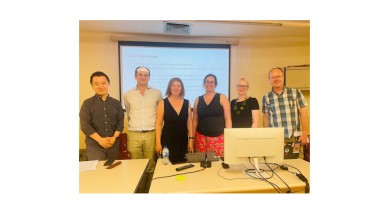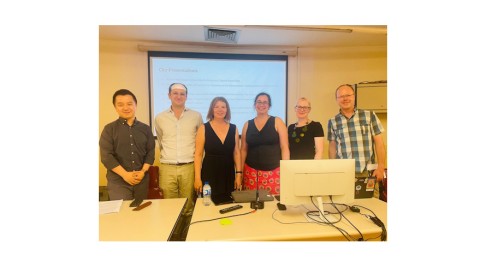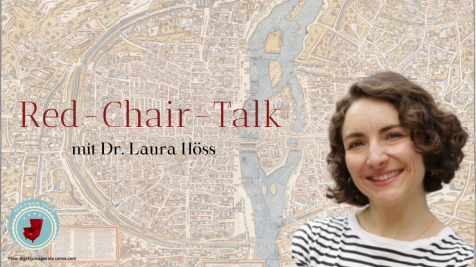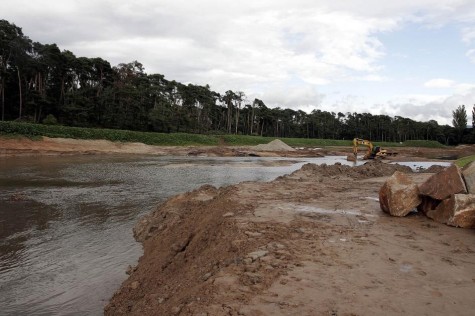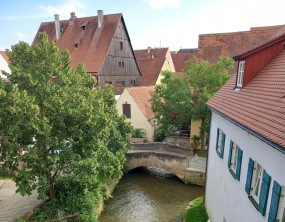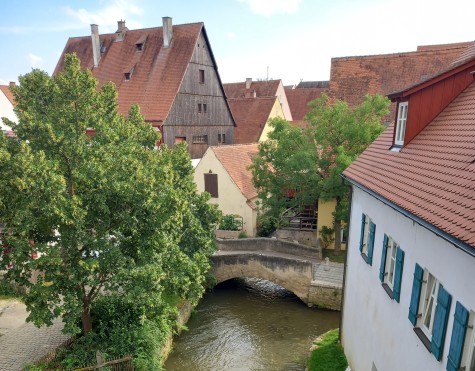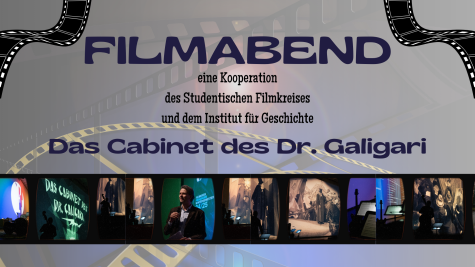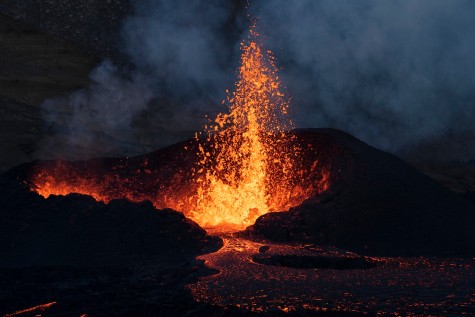-
![]() Picture: https://www.uni.lu/c2dh-en/events/history-of-digital-history-between-east-and-west/#thursday-5-february-2026
Picture: https://www.uni.lu/c2dh-en/events/history-of-digital-history-between-east-and-west/#thursday-5-february-2026![]() Picture: https://www.uni.lu/c2dh-en/events/history-of-digital-history-between-east-and-west/#thursday-5-february-2026
Picture: https://www.uni.lu/c2dh-en/events/history-of-digital-history-between-east-and-west/#thursday-5-february-2026Registration is open: Workshop “History of Digital History between East and West” (6-7 February 2026)
2025/10/31
HDSM is delighted to announce that the registration for the workshop “History of Digital History between East and West” is now open.
In histories of digital history, as in digital humanities in general, much emphasis has been placed on the two commonly recognized centers of the development of historical computing since the 1950s: the United States and Western Europe. As a result, crucial developments elsewhere have been overlooked, including in the Nordic countries as well as the Soviet Union and the various states of the Eastern bloc. This workshop will address blind spots by focusing attention on the question of how the local and the transnational intersected in the technology-inflected reshaping of historical research practices and how political backgrounds, contexts and constraints fed into this process.
-
![]() Bild: Thomas Kelley/Unsplash
Bild: Thomas Kelley/Unsplash![]() Bild: Thomas Kelley/Unsplash
Bild: Thomas Kelley/UnsplashLatein-Lektürekurs für TU-Studierende
2025/10/31
Angebot der Goethe-Universität Frankfurt
Studierende des Instituts für Geschichte haben die Möglichkeit, an einem lateinischen Lektürekurs an der Universität Frankfurt teilzunehmen.
-
![]() Picture: R. Recalde/Unsplash
Picture: R. Recalde/Unsplash![]() Picture: R. Recalde/Unsplash
Picture: R. Recalde/UnsplashFood Studies – Quo vadis: Two Day Conference
2025/10/15
Hosts: Julia Seeberger (University of Erfurt) and Stephan F. Ebert (TU Darmstadt)
From November 13th to 14th, researchers in the field of food studies will be gathering in Erfurt to chat about the growth prospects for this discipline. Registration open until November 3rd!
-
![]()
![]()
Announcement of the Program of Oberseminar @HDSM Winter Semester 2025/26
2025/10/10
HDSM is thrilled to announce the new session of the Oberseminar during the upcoming winter semester 2025/26.
What? The Oberseminar is a forum for the presentation and discussion of state-of-the-art research at the crossroads of digital methods and data in the fields of Digital History and Digital Humanities. When? It is a weekly event from mid-October 2025 to mid-February 2026 and it is scheduled on Tuesdays from 4:15 to 5:55 pm. Where? Oberseminar will accommodate hybrid format. Presentations will be recorded and published on the media channels of the HDSM to ensure a permanent record of the symposium. Registration is required to attend the seminar online. Registration link will be provided closer to the day of the first lecture.
-
![]() Bild: M. Grabarits
Bild: M. Grabarits![]() Bild: M. Grabarits
Bild: M. Grabarits14. Newsletter der Coffee Lectures Geschichtsdidaktik
2025/10/08
Im 14. Newsletter verweisen wir auf verschiedene Workshops und Vorträge, Sie lernen das die Plattform Ariadne der Österreichischen Nationalbibliothek kennen und wir stellen den 2024 erschienenen Sammelband „Historisches Erzählen in Digitalien“ vor. Schauen Sie doch direkt einmal hinein!
-
![]() Picture: TU Darmstadt | Source: https://www.gugw.tu-darmstadt.de/studium_fb2/studierende_1/erstsemester/orientierungswoche/index.de.jsp/
Picture: TU Darmstadt | Source: https://www.gugw.tu-darmstadt.de/studium_fb2/studierende_1/erstsemester/orientierungswoche/index.de.jsp/![]() Picture: TU Darmstadt | Source: https://www.gugw.tu-darmstadt.de/studium_fb2/studierende_1/erstsemester/orientierungswoche/index.de.jsp/
Picture: TU Darmstadt | Source: https://www.gugw.tu-darmstadt.de/studium_fb2/studierende_1/erstsemester/orientierungswoche/index.de.jsp/Orientation event for History students on Wednesday October 8,2025, 9:50h, S3I13 30
2025/10/06
It's great to have you here :-)
Do you have lots of questions about the university structure, your degree programme, orientation at the department, the course of study and other things? No problem, we won't leave you alone and will help you find your way around as best we can. We look forward to meeting you at the orientation event!
-
![]()
![]()
Sisyphos im Maschinenraum. Eine Geschichte der Fehlbarkeit von Mensch und Technologie“ ist auf der Shortlist für den Bayerischen Buchpreis.
2025/09/15
-
![]()
![]()
HDSM Contributes to the DH2025
2025/09/12
On July 14-18, the Digital Humanities Conference 2025 took place at NOVA-FCSH in Lisbon. HDSM member, Prof. Julianne Nyhan, gave a talk at Panel 3: “The global state of digital history: Establishing data culture(s) in uncertain times“. Our colleague Dr. Nadezhda Povroznik co-organised Panel 10 “Openness in GLAM: Analysing, Reflecting, and Discussing Global Case Studies” and also gave a talk on “A Dual Lens on Openness of the Rijksmuseum: Tracing Historical Processes via Web Archives”.
-
![]() Bild: M. Grabarits
Bild: M. Grabarits![]() Bild: M. Grabarits
Bild: M. Grabarits13. Newsletter der Coffee Lectures Geschichtsdidaktik
2025/08/14
Im 13. Newsletter berichten wir von der Frankfurter Planspieltagung und einem Workshop mit historischen Objekten und Augmented Reality. Sie lernen das Medienportal dekoder.org und ein Scroll-Doku-Projekt kennen, das den deutschen Vernichtungskrieg gegen die Sowjetunion im Zweiten Weltkrieg thematisiert und als Lektüretipp stellen wir den 2020 erschienenen Sammelband „Historisches Lernen und Materielle Kultur“ vor!
-
![]() Picture: Hoffmann, Karasek, Loroch, Schneider, Seibel, 2019
Picture: Hoffmann, Karasek, Loroch, Schneider, Seibel, 2019![]() Picture: Hoffmann, Karasek, Loroch, Schneider, Seibel, 2019
Picture: Hoffmann, Karasek, Loroch, Schneider, Seibel, 2019Hearing, seeing and tasting research
2025/07/14
Book launch and panel discussion
On Friday, 4 July 2025, Prof. Dr Gerrit Jasper Schenk and Dr Stephan F. Ebert from TU Darmstadt, Institute of History, Section Medieval History presented their new anthology “Vom Buch aufs Feld – Vom Feld ins Buch. Verflechtungen von Theorie und Praxis in Ernährung und Landwirtschaft (ca. 1300-1600)” to the public at the UNESCO World Heritage Site Lorsch Monastery as part of a panel discussion. The evening was chaired by biologist Bettina Walter from the Heimat- und Kulturverein e. V. Lorsch and the AG Kräutergarten.
-
![]()
![]()
Krisenmanagement in Darmstadt. Die Stadtverwaltung und der Hunger im Ersten Weltkrieg
2025/07/04
ein Vortrag von Marco Zivkovic, M.A.
In seinem Vortrag beleuchtet Marco Zivkovic M.A., Projektmitarbeiter im Forschungsprojekt „Die Darmstädter und Darmstadt im Ersten Weltkrieg“ am Institut für Geschichte der @tudarmstadt (gefördert von der Sparkasse Darmstadt), die Herausforderungen und Reaktionen der Darmstädter Stadtgesellschaft auf den Ersten Weltkrieg.
-
![]()
![]()
Dr. Laura Höss im Interview
2025/07/04
Im Interview mit Lisa Warkus (studentische Hilfskraft für Social Media am Institut) gibt sie spannende Einblicke in ihre Dissertation, spricht offen über die größten Herausforderungen beim Schreiben, erzählt von ihrer Auszeichnung – und verrät, was bei ihr als Nächstes ansteht.
-
![]()
![]()
The Royal Coffers. Approaches to European Monarchies and their financial behavior between 1650 and 1950
2025/07/04
Call for Papers, International Conference, 04.-06.03.2026 / Darmstadt
Deadline: 18th July 2025
-
![]() Picture: Wikimedia Commons/Kübelbeck
Picture: Wikimedia Commons/Kübelbeck![]() Picture: Wikimedia Commons/Kübelbeck
Picture: Wikimedia Commons/KübelbeckNew Publicaton from the Middle Ages
2025/06/20
Open access: Fluvial Landscapes in Transition. A Concise Multidisciplinary Guide to the Study of Sources on the Fluvial Anthroposphere
Edited by Gerrit Jasper Schenk and Nicolai Hillmus (section Middle Ages, Institute of History, TU Darmstadt), this brief source guide intends a critical introduction to different ways of researching the fluvial anthroposphere, i.e. the floodplain landscape under the increasing influence of humans over the course of time. In addition to the use of typical historiographical sources such as urbaria and chronicles, the individual articles also analyze material sources such as the remains of river bank reinforcements, flood marks, sediment profiles, terrain models as well as plant and animal fossils.
-
![]() Picture: A. Schilz
Picture: A. Schilz![]() Picture: A. Schilz
Picture: A. SchilzCongrats to Kristin Zech on her “summa cum laude” dissertation
2025/05/19
-
![]() Picture: Gerrit J. Schenk
Picture: Gerrit J. Schenk![]() Picture: Gerrit J. Schenk
Picture: Gerrit J. SchenkNew release: Fluvio-social metabolism as a bridging concept
2025/05/19
Now available as a citable preprint on a repository of the Deutsche Archäologische Institut
The publication „Fluvio-sozialer Metabolismus als Brückenkonzept mittlerer Reichweite. Ein Vorschlag zur Untersuchung der Fluvialen Anthroposphäre" by Iris Nießen, Gerrit J. Schenk, Marcel Schön treats a bridging concept that was developed as a proposal for interdisciplinary studies of human impact on floodplain landscapes.
-
![]()
![]()
„Sisyphos im Maschinenraum. Zur Fehlbarkeit von Mensch und Technologie“ wurde für den Deutschen Sachbuchpreis nominiert
2025/05/07
-
![]() Picture: Michi/Pixabay
Picture: Michi/Pixabay![]() Picture: Michi/Pixabay
Picture: Michi/PixabayNew publication: Publication on medieval cuisine
2025/03/12
Paolo Santonino as an Informant of Culinary Knowledge and Practice in the Alps-Adriatic Region in the 1480s
New Open Access publication by our colleague Stephan Ebert from the Middle Ages Section. Dr Ebert's article examines the travel diary of the Italian lawyer Paolo Santonino (ca. 1440-1507) focusing on the history of food and consumption at the end of the Middle Ages and shows, among other things, how new culinary trends from Italy are tangible in the south-east of the German-speaking world. There, for example, early forms of spaghetti were already being served in the 1480s.
-
![]()
![]()
Erfolgreicher Filmabend: Kooperation zwischen dem Institut für Geschichte und dem Studentischen Filmkreis
2025/03/11
Gezeigt wurde der Stummfilmklassiker „Das Cabinet des Dr. Galigari“ aus dem Jahr 1920 – ein echtes Highlight, das nicht nur Filmfans begeisterte.
-
![Höss_2024]() Bild: bloom fotostudio
Bild: bloom fotostudio![Höss_2024]() Bild: bloom fotostudio
Bild: bloom fotostudioDr. Laura Höss für ihre herausragende Dissertation ausgezeichnet
2025/02/18
-
![]() Bild: Giuseppina Amenta
Bild: Giuseppina Amenta![]() Bild: Giuseppina Amenta
Bild: Giuseppina AmentaKarl Otmar Freiherr von Aretin-Preise 2024 vergeben
2025/02/14
Eine Ehrung herausragender studentischer Arbeiten
Das Institut für Geschichte verleiht nach 2 Jahren wieder den Karl Otmar Freiherr von Aretin-Preis für herausragende Abschlussarbeiten. Sarah von Petersdorff, Georg Walter und Dominik Roth erhielten den Preis in den Kategorien „B.A.-Thesis“und „Masterarbeit“.
-
![]() Bild: Wikimedia Commons/Friedi13
Bild: Wikimedia Commons/Friedi13![]() Bild: Wikimedia Commons/Friedi13
Bild: Wikimedia Commons/Friedi13Stadt und Fluss: Neue Forschungen zur urbanen Flussaue Nördlingens
2025/02/07
Vorstellung der Forschungsergebnisse im Rahmen eines Projekttreffens
Vom 22. bis 24. Januar trafen sich die Mitglieder des Schwerpunktprogramms 2361 in Nördlingen, um erste Ergebnisse der Forschungen in den einzelnen Projekten vorzustellen und zu diskutieren.
-
![]() Picture: Pixabay: Gylfi Gylfason
Picture: Pixabay: Gylfi Gylfason![]() Picture: Pixabay: Gylfi Gylfason
Picture: Pixabay: Gylfi GylfasonFresh from the Institute of History!
2025/02/04
Innovative analytical tool for interdisciplinary studies on nature-induced disasters
The Icelandic eruptions of Eldgjá (939–40 AD) and Laki (1783–84 AD) served as case studies.
-
![]()
![]()
Nach der Katastrophe: Wie resilient ist der Schutzraum Stadt?
2025/01/27
Nicolai Hanng im Interview mit dem Deutschlandfunk Kultur Studio 9
-
![]()
![]()
EINLADUNG ZUR ARETIN-PREISVERLEIHUNG 2024
2025/01/22
Nach zwei Jahren vergibt das Institut für Geschichte erneut den Karl Otmar Freiherr von Aretin-Preis für die besten Abschlussarbeiten im Fach Geschichte.
Institute of History

Latest news
Latest news
Get the latest news about our research, teaching, events or recent publications. To read previous news please check out our news archive. For more information about our focus in research, follow the link to "research projects and more".















